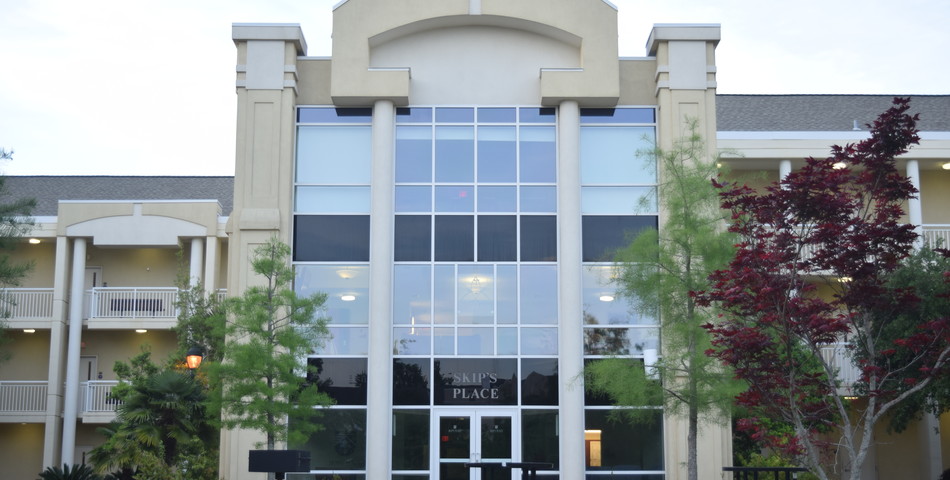Residency Requirements become costly to some Spring Hill students.
The new Vice President of student affairs, Kevin Abel discussed possible policy changes for the 2018-2019 school year Thursday morning, and insured students that he would make efforts to best understand their needs. Able says, “I want to be able to build a common language among our current student leaders and give them a common experience together and then be able to provide an opportunity to be able to collaborate with one another, and I think that is where we see some of our strongest programs at is when we are reaching across to student groups and collaborating on creating engaging experiences.” Abel is all about building on the student experience and, as he says in his introduction, the “#SHCFamily.” Abel also says that, “I believe in quality over quantity, I know that there is a lot going on on-campus for such a small campus, but we want to make sure that our engagement opportunities are quality experiences.”
There is one prominent issue that has lingered around Spring Hill College for a while: the residency requirement policy. The Student Handbook states that, “All undergraduate students with full-time status (enrolled in a minimum of 12 hours per semester) are required to reside in on-campus housing and purchase a meal plan for every semester they are an undergraduate student, with the exception of summer terms.” There are certain exemptions to that rule, including living with a parent, marriage, age, medical condition or disability and financial hardship. Yet, the handbook states that, “fulfilling the requirements for exemption does not constitute an automatic release from the residency requirement.” Abel discussed this issue and says that, “I think part of the philosophy behind that especially in a small community is that we’ve found that students who lives on campus tend to be more engaged, tend to do better academically in their coursework, tend to get more out of classroom interaction with their faculty members as well which as you know is a key to student success and persistence.”
For some students, this may be the case, but for others such as junior, Shannon Bell, the situation is a bit different. Bell says, “I chose to live off campus to save money and because of food allergies.” While last year Bell was granted to live off campus, this year Spring Hill argued that her doctors note was invalid. The school is currently charging Bell to live on campus although she is paying for an apartment off campus. One of Bell’s main issues with living on campus are the expenses. She did some research and came to the conclusion that living off campus is cheaper than living in a dorm room. According to Spring Hill College Residence Life, a single room in the New Hall dorms is $8,860 a year. The cheapest meal plan would be five swipes a week in the cafeteria at $5,760, making the total cost of living for a year $14,620. An estimate of a local apartment complex called Campus Quarters, according to their website, would be $7,000, making the addition of the commuter meal plan of $1,260 and then adding an additional $300 a month for groceries ensures the yearly cost of living to be around $8,590. The price difference is a very large and Bell realized this while looking to move off campus. She says, “The cost of living on campus is significantly more than living off campus. I feel as though we should not be charged so much to live on campus when our living environment is run down and falling apart.”
With a new vice president of student affairs, Bell hopes to see future changes. Abel shares that, “It is one of the things that I have on my agenda for this year is to be able to do some benchmarking with a variety of aspects of our residential experience. Pricing is one of those, and I know it is something of concern. We know that people are very price conscious, and we know that things get difficult at times. I am attuned to try and figure out how we can best meet the needs and provide the surpluses, and I think philosophically it is important to have that four-year requirement, and I think we believe in that, but we need to be able to analyze and look at where we are at compared to other colleges and universities as it compares to our pricing.” When it comes to other college and universities, the price is just as costly. According to the Washington Post “room and board at private four-year universities costs an average of $9,678, an expense that has gone up 47 percent in the past decade, according to the College Board. At public four-year colleges, the average price is $9,130 and has increased 58 percent in the past 10 years. In a nine-month academic year, that works out to $1,014.44 a month for what is in many cases a shared room and communal dining, well above the median asking rent of $803 a month recorded by the Census Bureau.”
During the press conference, he also targeted issues such as getting commuters more involved on campus and working on the student retention rate.
